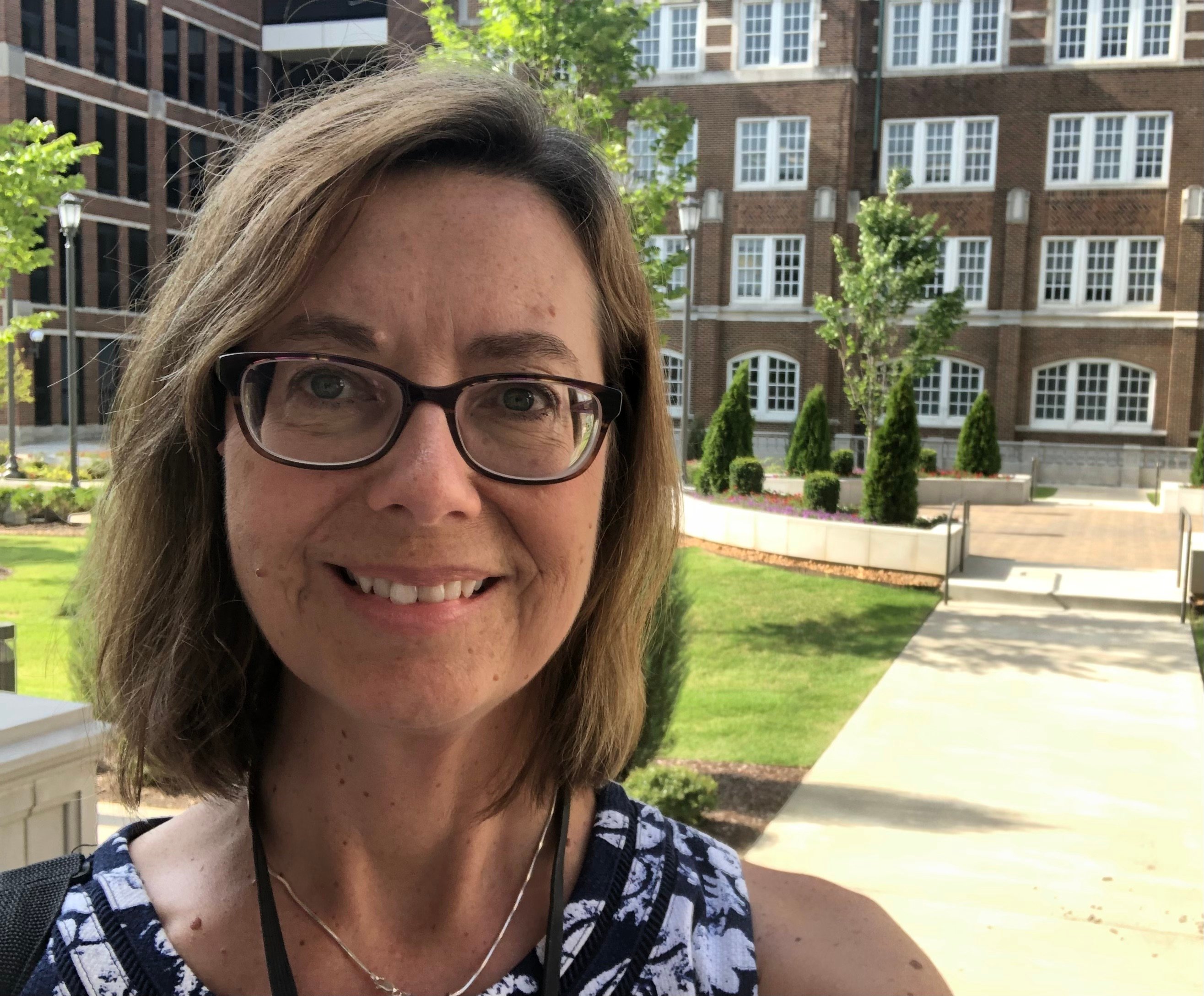
A chance meeting on vacation introduced Leigh Ann Roman to a growing Church movement for families.
I found something unexpected on our recent vacation in the mountains of Arkansas. It was the domestic church.
While watching the sunset from behind the Petit Jean State Park lodge, I was approached by a young mother who asked me to take a picture of her family with the mountains and sunset in the background. The family included the mother and father and five children ranging in age from 11 years old to 18 months. When she saw my crucifix necklace, her face brightened. “You’re Catholic,” she said, giving me a high five. We had a pleasant, short conversation, and I went back into the lodge.
At the pool the next day, I saw the family again and spent more time talking with them. That was when I learned that the couple, McKenzie and Josh, are part of Domestic Church, a lay movement for sacramentally married Catholics of any age and stage in life.
We talked for more than an hour and, as I spent more time with them and learned about this movement, I began to gain insight into the peace and joy I saw in this family.

How Domestic Church Began
Domestic Church is a movement founded in Poland in the early 1970s by Father Franciszek Blachnicki with guidance from his friend, Bishop Karol Wojtyla, the future Saint John Paul II. The movement providers Catholic Christian community and lifelong spiritual formation through small groups and retreats for Catholic families or couples. There are more than 13,000 Domestic Church couples or families in Poland, and nearly 5,000 more around the world.
The movement came to the United States in 2011, starting in Lake Charles, Louisiana, where my new friends McKenzie and Josh live. Married for 15 years, they have been involved in the movement for 13 years, since before having children, and McKenzie said she didn’t know what her life would be like without it.
The movement focuses on seven commitments by the couple involved: daily individual prayer, daily study of Scripture, daily couple prayer, daily family prayer, a monthly couple dialogue, an annual Domestic Church retreat and a rule of life that helps the family grow in holiness.
McKenzie’s family had just returned from the annual Domestic Church family retreat where they had joined with other families for talks, relaxation, play, daily Mass, and Adoration. McKenzie’s oldest son said his favorite aspect of the retreat was daily Adoration.
Being part of the Domestic Church movement helps the family live more intentionally as Catholics, McKenzie said. The encouragement and guidance the family receives to live in the world but not for the world is invaluable.
The name “Domestic Church” comes from the Catechism of the Catholic Church (CCC):
In our own time, in a world often alien and even hostile to faith, believing families are of primary importance as centers of living, radiant faith. For this reason the Second Vatican Council, using an ancient expression, calls the family the Ecclesia domestica [the domestic church]. (CCC 1656)

The Fruits of Commitment
McKenzie related that she has a friend with five children who are similar in age to her own, but that family lives a very scheduled life as many American families do. Thanks to her formation in Domestic Church, McKenzie said she strives to focus on family time together and daily Mass with the children. An important aspect of the movement is the monthly couples' dialogue, in which couples meet to talk and share their lives with one another.
Both McKenzie and Josh spoke about the fruit of their commitment to the movement, especially in truly knowing one another and their children well. And they spoke of the encouragement they receive during the monthly couples' meetings in which they meet with other families who face similar or different challenges.
During their visit to Petit Jean State Park, McKenzie and Josh and all of their children completed the most strenuous hike at the park with McKenzie wearing the toddler and holding the hand of the 4-year-old on the steep, narrow path. They prayed the Rosary together on the hike, McKenzie said, something she doubted would have been possible without the influence of the Domestic Church movement.

Family life can be messy and difficult, especially in the everyday. But it also is beautiful and joyful. Domestic Church seemed to give this couple strength for the difficult parts of family life so they can enjoy the beautiful.
Marriage is, after all, a sacrament. And Domestic Church is a movement that accompanies everyday Catholic couples of all ages through the lifetime of their sacrament.
More information about Domestic Church can be found at DomesticChurchFamilies.com.
Share your thoughts with the Catholic Mom community! You'll find the comment box below the author's bio and list of recommended articles.
Copyright 2024 Leigh Ann Roman
Images: (top) Canva; all others copyright 2024 Leigh Ann Roman, all rights reserved.
About the Author

Leigh Ann Roman
Leigh Ann Roman is a Kentucky native and Catholic convert who makes her home in Memphis, Tennessee, where she works in higher education communications. A former newspaper reporter, Leigh Ann enjoys reading and writing about the Catholic faith. She and her husband have two grown children. Follow her on Instagram @Eaglestonroman


.png?width=1806&height=731&name=CatholicMom_hcfm_logo1_pos_871c_2728c%20(002).png)
Comments